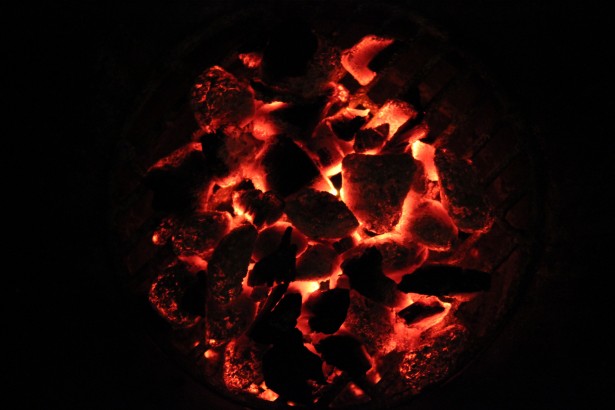FWP:
Nazm puts it succinctly and well. But is that all that's going on? Is the verse really so limited and basic?
Perhaps the two ways to read ġhamhā-e nihānī are meant to be experienced as interestingly and enjoyably different: on one reading, the heat of the fire of Hell is being contrasted with the 'heat' of the lover's own private griefs; on the other reading, the public openness of the sufferings of Hell is being contrasted with the sufferings caused by the need for discreet 'concealment' of the lover's condition.
Maybe we should consider it a mushairah verse, in which the withholding of the key word nihānī until the last possible moment delays interpretation in a satisfying manner.
Note for translation fans: It was so hard to resist the urge to end the second line with 'something else'! To stay true to my practice of clunky literalness, I've managed to refrain. But anyone making a literary translation could hardly find a more perfectly accurate and idiomatic phrase. I highly recommend it!

Ghalib:
[1860, to Shafaq:] These days pass badly for me. In the heat my state is exactly that of animals who drink water with their tongues-- especially in this July, since there's a crowd of griefs and anxieties [ġham-o-hamm kā hujūm]: {160,2}. (Arshi 313)
==Urdu text: Khaliq Anjum vol. 3, pp. 990-91
==another trans.: Daud Rahbar, p. 181